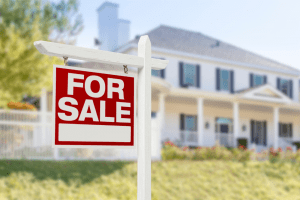When you put your house on the market, the hope is that it will sell quickly and for a good price. However, sometimes homes sit on the market for months or even years with little interest from potential buyers. This can be frustrating and stressful for homeowners, and it’s important to understand why a house may not be selling. Here are some reasons why houses don’t sell:
- Overpricing: One of the most common reasons why houses don’t sell is that they are overpriced. Sellers may have unrealistic expectations about what their home is worth or may not have researched the local market thoroughly. Overpricing can turn off potential buyers, who may see the price and move on to other properties that are more reasonably priced.
- Poor Condition: Another reason why houses may not sell is that they are in poor condition. If a home is outdated, has significant damage or is in disrepair, buyers may be turned off. Homes that are in need of major repairs or renovations may require a lot of time and money to make them livable, and many buyers simply don’t have the resources to take on such a project.
- Poor Marketing: Even if a home is in good condition and priced reasonably, it may still not sell if it is not marketed properly. Effective marketing is key to attracting potential buyers and generating interest in a property. This can include everything from high-quality photos and virtual tours to listing the property on multiple websites and social media platforms.
- Location: The location of a property can also impact its saleability. Homes that are in undesirable locations or that are too far from amenities may not be attractive to potential buyers. Even if the home itself is in good condition, buyers may not be willing to compromise on location.
- Competition: In some cases, a home may not sell simply because there is too much competition in the local market. If there are a lot of similar homes for sale in the same area, buyers may have a lot of options and be less likely to choose any one particular property. This can lead to homes sitting on the market for longer periods of time.
- Economic Conditions: Finally, the overall economic conditions of the area can impact the sale of homes. If the local economy is in a downturn or if there is high unemployment, potential buyers may be hesitant to make a big investment in a new home. Additionally, changes to interest rates or mortgage regulations can impact the affordability of homes, which can also impact sales.
If your home is not selling, it’s important to identify the reason why and take steps to address it. This may involve working with a real estate agent to re-evaluate the price, making repairs or renovations to the home, or investing in more effective marketing strategies. With the right approach, you can increase the chances of selling your home and moving on to the next chapter in your life.


